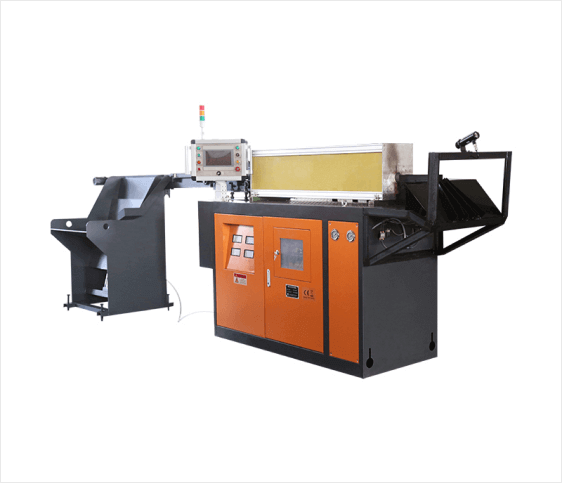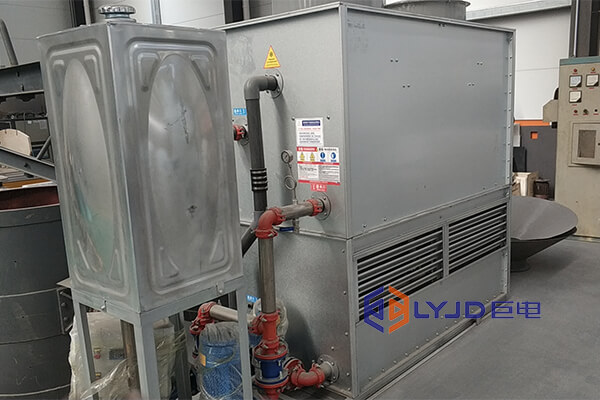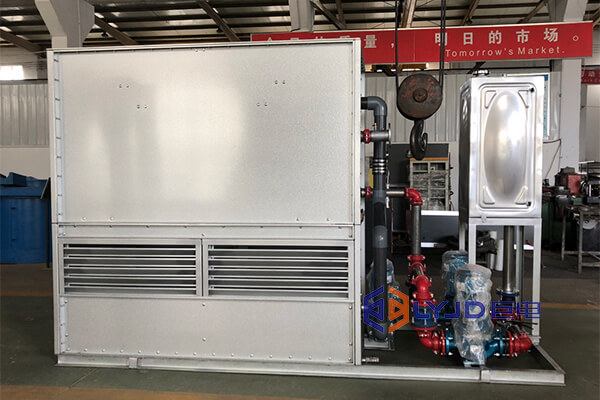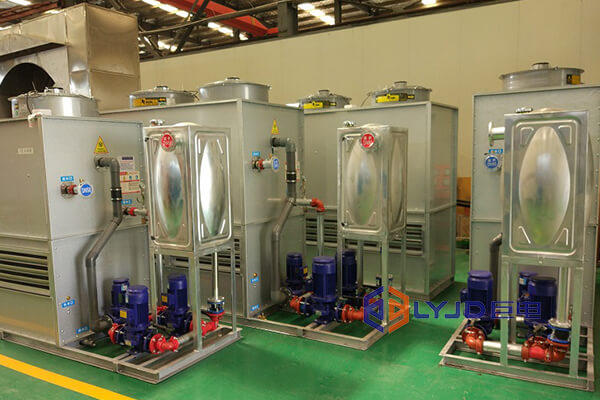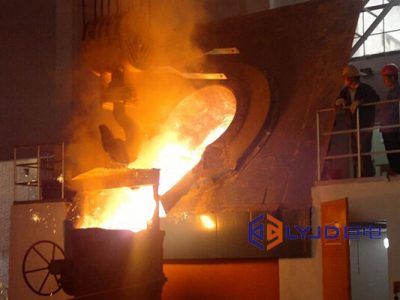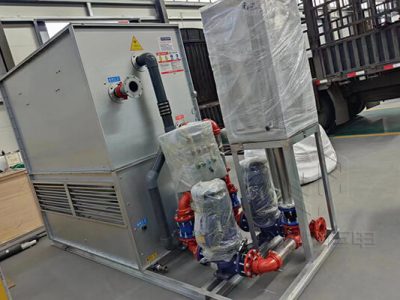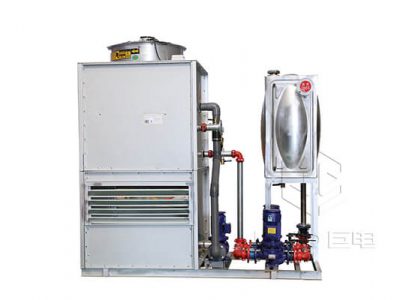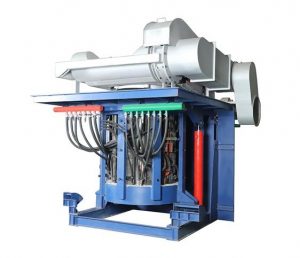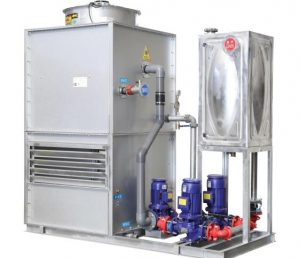A closed cooling tower is a special cooling equipment. It places a tubular heat exchanger in the tower and cools the circulating water through heat exchange between circulating air, spray water, and circulating water.
Closed Cooling Tower Structure
The closed cooling tower is mainly composed of water inlet and outlet pipes, a packing layer, a radiator, and a fan. Among them, the filler layer plays the role of increasing the contact area and time in the entire system, allowing air and water to fully contact and complete heat exchange. At the same time, the radiator of a closed cooling tower usually uses a copper tube surface cooler, which is also one of its core components.
Closed Cooling Tower Features
Because it is a closed cycle, the closed cooling tower can ensure that the water quality is not polluted. This not only protects the efficient operation of the main equipment and extends its service life, but also avoids problems such as traditional open cooling equipment being susceptible to external contamination and corrosion.
Secondly, the closed cooling tower can stop the spray water system when the outside temperature is low, thereby saving water. This feature makes closed cooling towers excellent in water conservation, which has significant advantages, especially in the current context of increasing water scarcity.
Why Is It Better to Use Soft Water?
Because it is a closed cycle, the closed cooling tower can ensure that the water quality is not polluted. But precisely because it is a closed cycle, it has higher requirements for the quality of the cooling water. Normally, we recommend using soft water as the working medium for closed cooling towers. Here’s why:
Prevent Scaling and Clogging
The closed cooling tower adopts a fully enclosed internal circulation, and the cooling medium circulates in a closed loop within the condenser coil. Using soft water can prevent calcium, magnesium, and other minerals in the water from scaling on the inner walls of the pipes, thereby reducing the risk of pipe blockage and ensuring the normal operation of the cooling tower.
Protect Equipment
The Soft water contains no or fewer minerals and has no corrosive effect on the metal pipes and equipment inside the cooling tower, helping to extend the service life of the equipment.
Improved Cooling Efficiency
Since soft water does not form scale, the cooling tower's heat dissipation area is maintained, thereby improving cooling efficiency. In contrast, using ordinary water may cause scaling and affect heat dissipation.
It is important to note that while soft water has many advantages in fluid cooling towers, its cost can be relatively high. Therefore, it is necessary to consider factors such as cooling needs, equipment protection, cost, and maintenance costs to decide whether to use soft water or ordinary water. It can be determined by mixing soft water and ordinary water in a certain ratio based on the following factors.
How Is the Ratio of Soft Water to Normal Water Determined?
In the closed cooling tower, the proportion of soft water and ordinary water is not a fixed value but needs to be determined according to the actual situation.
Water Hardness
Water hardness is the main factor in deciding whether to use soft or regular water. Hard water contains more minerals, such as calcium, magnesium, etc. These minerals can easily form deposits in the cooling tower, affecting the cooling effect and equipment life. Soft water contains relatively few of these minerals, and using soft water can reduce the formation of sediments. Therefore, if the water source has high hardness, the proportion of soft water used should be appropriately increased.
Cooling Needs
The main function of the cooling tower is to provide a cooling effect to the equipment. If the cooling demand is high, it may be necessary to increase the water flow or reduce the water temperature. At this time, the ratio of soft water and ordinary water can be adjusted according to the actual situation to achieve the best cooling effect.
Cost Considerations
Soft water usually requires special treatment, which is relatively expensive. Therefore, cost factors also need to be considered when determining the ratio of soft water to regular water. On the premise of meeting cooling needs and water quality requirements, the proportion of soft water used should be reduced as much as possible to save costs.
Equipment Maintenance
Long-term use of hard water may cause problems such as scaling and corrosion inside the cooling tower, increasing equipment maintenance costs. Using soft water can effectively reduce these problems, but too high a soft water ratio may also have an adverse effect on the equipment. Therefore, when determining the ratio, the maintenance needs of the equipment also need to be considered.
In Summary
Determining the ratio of soft water to ordinary water in a closed cooling tower requires comprehensive consideration of factors such as water hardness, cooling needs, cost, and equipment maintenance. In actual operation, the most suitable ratio can be found through experimentation and adjustment. At the same time, it is recommended to test the water quality regularly and adjust the proportion of soft water and ordinary water based on the test results to ensure the normal operation of the cooling tower and the long-term stability of the equipment.
